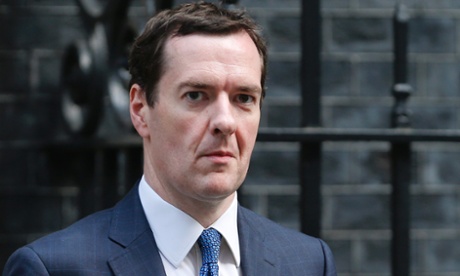
During the years I sat opposite him in parliament, I came to regard George Osborne as a seriously bad man whose principal aim in life is to lay waste to as much as possible of the public sector and who has skilfully used the undoubted economic crisis in the summer of 2008 as an excuse for doing so. Not so, according to Financial Times columnist Janan Ganesh.
If Ganesh is to be believed, Osborne was an unideological, socially liberal, well connected young upstart whose political hero was not Margaret Thatcher, but Tony Blair. As long as 20 years ago, and almost alone in the Tory party at that time, Osborne grasped one central lesson. Namely, that if the Tories were ever to win another election, they would have to join New Labour on the centre ground of British politics.
Like him or loathe him, Osborne is one of the most significant figures in modern British politics. His rise has been meteoric and apparently seamless. His route to power is the classic one: public school, Oxford, Tory central office, ministerial adviser… By the age of 30 he was in parliament, aged just 33 he was shadow chancellor and before his 40th birthday, he occupied the second highest position in the government.
There is much of interest in this lucid and well researched biography, but the author is a little too kind to his subject. Despite a reference to Osborne’s “cold, dispassionate guile”, the author does not do justice to the utter cynicism with which Osborne (and Cameron) went about exploiting what was by any measure a global economic crisis for their own ends. Although they now complain of Labour profligacy, one has to pinch oneself to recall that, until the end of 2008, the Tories were signed up to match Labour’s spending on the main public services “pound for pound”. They were also rather keen on deregulating the City.
Likewise, Ganesh fails to document how Osborne and his pals, with help from their friends in the media, set about pretending that the crisis of 2008 was a purely British phenomenon for which Gordon Brown was solely or mainly to blame. Nor does he seriously acknowledge that much of the debt we are struggling to repay arose from bailing out the bankers.
Finally, Ganesh – like his hero – appears oblivious to the damage that cuts in public spending “on a scale Thatcher would never have entertained” is doing to the social fabric.

